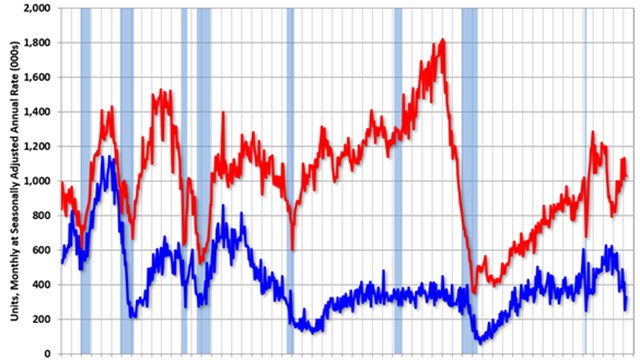One predictable thing about years is that they end. For many after a particularly turbulent 2017, this may come as quite the relief. Regardless of one's take on the past 365 days, 2018 awaits. The Cooperator reached out to a handful of New York-based real estate experts from various backgrounds to learn their hopes, concerns, and predictions for what the new year may hold for the industry at large.
Steve Elbaz, president of Esquire Management Corporation
For starters, I'm excited that technology continues to shrink buildings' impact on our environment.
My greatest concern, however, is that the new law passed requiring inspections of gas pipes as a result of the gas explosion that leveled a building in lower Manhattan [Ed., Elbaz is referring to Local Law No. 153] will expose buildings to unprecedented inconvenience and costs as gas is piped to every apartment in a building. Replacing these pipes will involve removing walls and ceilings with both asbestos and lead paint, as well as moldings, wires, conduits, wallpaper, and other decorations in residents' homes.
Aaron Shmulewitz, Esq., of Belkin Burden Wenig & Goldman, LLP
Co-ops, condos and the city at large will be affected significantly and adversely by the elimination of the federal deduction for state and local income taxes. Since that has been a significant tax deduction for many New York City apartment owners, its elimination will result in materially less money in their pockets, thus making apartment ownership less desirable. This will in turn lead to fewer purchases, driving down prices and increasing the number of apartments that languish unsold on the market, and that will increase the number of owners who are forced to sublet. This means lower transfer fee revenue for co-ops and more transiency in building populations.
Fewer transactions and lower prices will also mean less in transfer tax and mortgage recording tax revenues for the city, which will impact its ability to fund vital services and programs, and also deprive the MTA of much-needed funds. That, in turn, will prompt the city to impose yet higher taxes and MTA fare increases, creating a negative spiral of residents wanting to sell and leave town.
Elizabeth Ann Stribling-Kivlan, president of Stribling & Associates
I'm wary of the implications of the tax plan. I think that it will be better for New York City than it will be in surrounding areas, like Long Island and Essex County, just because of the way that we pay our taxes. But uncertainty is always tough, so regardless of which side of the aisle you're on, every four years the market slows down. At the end of the day, real estate is an emotional commodity, so there's a whole emotional side to this tax plan. That being said, it could provide a very good boon to the investment property market.
But I'm also really excited about Long Island City. It's continuing to grow, it's getting cooler and cooler by the minute, the prices are really great, and it's still a really good buy.
And finally, the townhouse market has been slowly popping up again the last few months; that could spur up further in 2018.
Eric M. Goidel, Esq., of Borah, Goldstein, Altschuler, Nahins & Goidel, P.C.
I'm concerned that the expected changes in the federal tax laws, particularly pertaining to capping the deductibility of real estate taxes and mortgage/loan interest, as well as the elimination of the deductibility of state and city taxes, will adversely affect the cooperative and condominium sales market.
In 2017, I observed that shareholders and unit owners in many buildings unexpectedly became quite angry with the boards that represented them. I'd never witnessed such a deterioration of relationships in my 35 years of practice, not even during the lowest of recessionary periods. I attribute this behavior to the uncivil discourse permeating our national politics, wherein one side is pitted against the other without willingness to even try and understand someone with a different outlook than one's own. In 2018, I hope that shareholders and unit owners will come to realize that that they have more in common with their fellow owners and volunteer board members than they have differences.
Snezan Cebic, licensed associated real estate broker with Douglas Elliman
The reinvention of retail: experiential spaces replacing standalone shops.
We're seeing mixed-use buildings with experiential [spaces] on the retail level, supported by the tenants upstairs, and with a social and/or event component that draws customers in. The experience is the product.
T. Austin Brown, attorney at The Austin Brown Law Firm
I'm seeing a lot of empty space lately. Mostly commercial, but much residential has commercial space on their first floors, and a lot of condos and co-ops rent these out to defray costs to the residents.
I think that this could mean two things: we finally get a commercial vacancy tax to pressure landlords to rent out space, rather than holding it empty for a tax write-off and anticipation of a primo tenant; or a correction that spreads to other areas, such as mortgages or student loan defaults.
For condos or co-ops with commercial space, this could mean that a space that is vacant may quickly become less valuable. This could hurt budgets, or break board deadlock in getting the space rented to tenants who are less financially exciting.
Of course, if we don't see a vacancy tax, expect to see more 'high-end blight,' as commercial entities take their business online to avoid astronomical rent in expensive yet blighted neighborhoods.
Anyway, I think we're near the top of the market, and are due for a correction in both sale and rental prices. And a vacancy tax would eliminate some perverse incentives.
Abdullah Fersen, founder of Newgent Property Management
This year, we took over a building in the Bronx that had been bankrupted. We finished Local Law 11 work, redid the boiler twice, renovated the lobby – which we're now finishing - and all without a single assessment.
Early next year we're going to have a party in the lobby for owners to hang out and chat. We invited Senator Jeff Klein, who'd long dealt with complaints at the property in its previous incarnation. It's one of the most successful stories in my portfolio.
Alvin Wasserman, director of asset management, Fairfield Properties
Effective January 1, 2018, a board of an incorporated condominium or co-op in New York State must comply with new conflict of interest requirements and disclose specific information about community contracts whenever a contract is considered a “related party transaction.”
This increased transparency is taking some of the mystery out of how boards conduct business. Boards have been shielded by New York State Business Corporation Law and have been able to keep secret most of their business decisions. This has kept board decisions private from community members that want to know how their investment is managed. I believe most board members operate in good faith but there is a small percentage that have questionable business practices.
We live in a world where privacy is diminishing. We should consider anything we do on the internet visible to everyone. Cameras are everywhere for security purposes, to collect tolls, and to issue driving violations. One definition of courage from an eastern philosophy is to do that which you should, and to not do that which you should not. If board actions are reasonable, with the best interests of the community in mind, there should be no concern about transparency.
Mike Odenthal is a staff writer at The Cooperator.







Leave a Comment